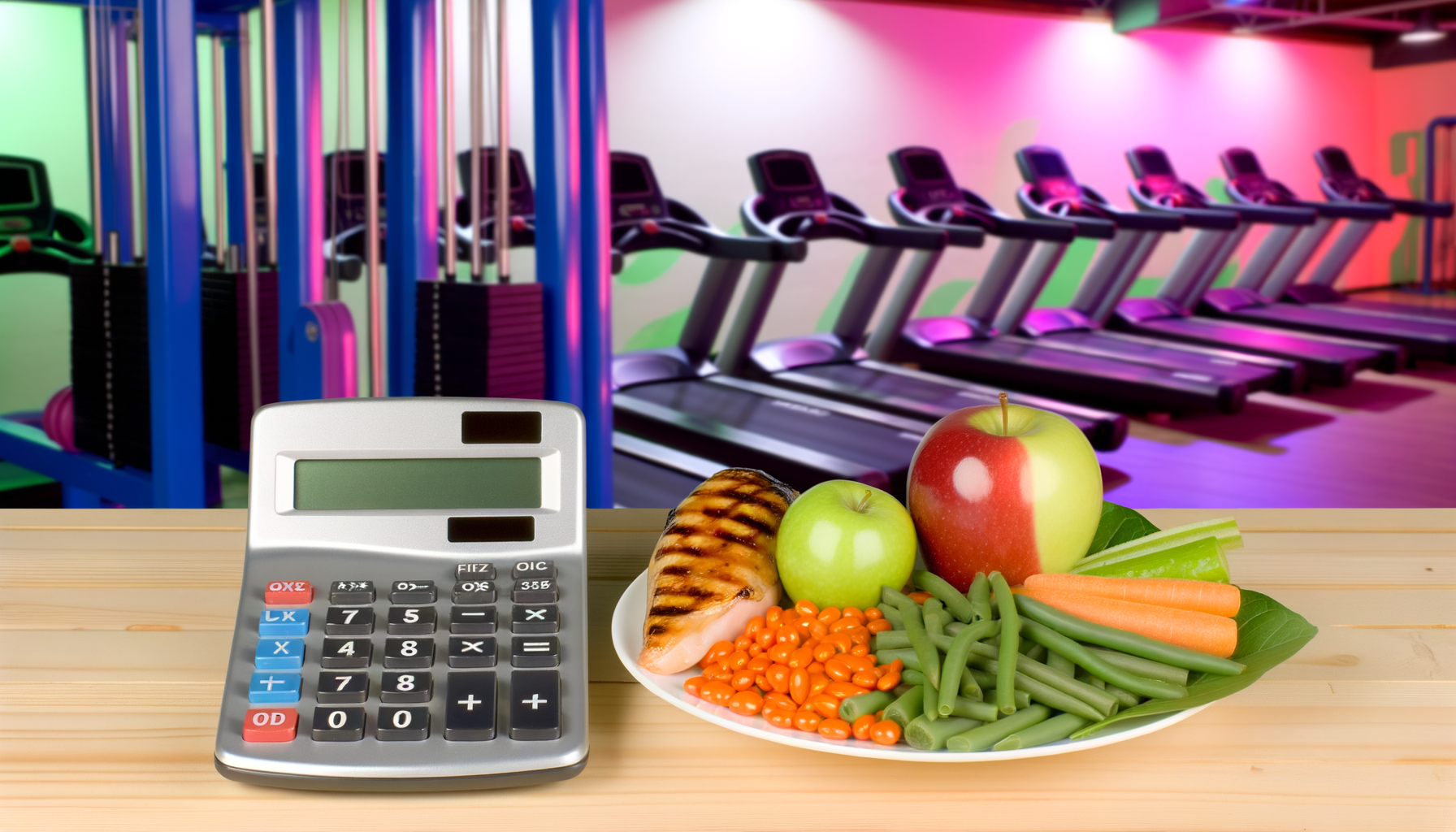How to Use Calorie Calculators to Enhance Your Nutrition Coaching
How to Use Calorie Calculators to Enhance Your Nutrition Coaching
Nutrition coaching is a highly personalized field that requires precise and tailored approaches to help clients achieve their health and fitness goals. One of the most effective tools in a nutrition coach's arsenal is the calorie calculator. In this article, we will delve into how to use calorie calculators effectively, their limitations, and how they can be integrated into a comprehensive nutrition coaching plan.
Understanding Calorie Calculators
Calorie calculators are designed to estimate an individual's daily caloric needs based on various factors such as age, gender, height, weight, and activity level. These tools provide a starting point for diet planning but should not be relied upon exclusively. Here’s why:
Firstly, calorie calculators do not account for genetic predisposition, metabolic health, or health history, which are crucial factors in determining nutritional needs. For instance, someone with a history of disordered eating or metabolic disorders may require a different approach than someone without such health issues.
Secondly, these calculators often fail to consider current caloric intake and previous eating patterns, which significantly impact how the body responds to new dietary changes. This oversight can lead to inaccurate recommendations that may not align with the individual's actual needs.
Key Features of Effective Calorie Calculators
Despite their limitations, some calorie calculators stand out for their comprehensive approach and user-friendly features. Here are some key features to look for:
- Ease of Use: A good calorie calculator should be easy to navigate, guiding users through the input process clearly.
- Goal Setting: The ability to set a goal weight and date is invaluable for planning and tracking progress.
- Activity Level Estimation: Accurate estimation of activity levels is crucial. Some calculators allow for more precise activity level inputs, which can lead to better estimates.
- Progress Tracking: Features like graphing estimated progress can help users see how their actual results compare to the calculator's estimates, facilitating adjustments.
- Metabolic Adaptation: Calculators that account for metabolic adaptation are more accurate, as they consider how the body adjusts to changes in caloric intake.
Using Calorie Calculators in Nutrition Coaching
To effectively use calorie calculators in nutrition coaching, follow these steps:
- Determine Baseline Calories: Start by calculating the client's maintenance calorie level, which is the number of calories needed to maintain their current weight. This is typically done using formulas that take into account age, gender, weight, height, and activity level.
- Set Goals: Help clients set realistic goals, whether it's weight loss, muscle gain, or maintenance. This will guide the caloric deficit or surplus needed.
- Track Progress: Encourage clients to track their progress, not just by weight but also by other metrics such as body measurements, energy levels, and overall well-being. This data will help in making informed adjustments to the diet plan.
- Adjust Based on Data: Use the tracked data to adjust the caloric intake. For example, if a client is losing weight too quickly and feeling lethargic, it may be necessary to increase their caloric intake.
- Consider Additional Factors: Take into account the client's dieting history, current eating habits, preferences, and health status. These factors can significantly impact the effectiveness of the diet plan.
Real-World Examples and Case Studies
Let's consider a few real-world scenarios to illustrate how calorie calculators can be used effectively in nutrition coaching:
Scenario 1: Weight Loss
A client wants to lose weight and uses a calorie calculator to determine their daily caloric needs. The calculator suggests a caloric deficit of 500 calories per day to achieve a weight loss of 1 pound per week. However, after a few weeks, the client reports feeling weak and experiencing low energy levels. The coach reviews the data and decides to increase the caloric intake slightly to ensure the client has enough energy while still losing weight.
Scenario 2: Muscle Gain
A client aims to gain muscle and uses a calorie calculator to determine their caloric surplus. The calculator recommends an additional 250 calories per day above maintenance levels. The coach advises the client to track their progress, including muscle mass measurements and strength gains. If the client is not seeing the desired results, the coach may adjust the caloric surplus or macronutrient ratios.
Limitations and Considerations
While calorie calculators are valuable tools, they are not without limitations. Here are some considerations to keep in mind:
- Genetic and Metabolic Factors: As mentioned earlier, these calculators do not account for genetic predispositions or metabolic health, which can affect how the body responds to different caloric intakes.
- Health History: Clients with a history of disordered eating or metabolic disorders may need a more tailored approach that goes beyond what a calculator can provide.
- Current Eating Habits: The calculator's estimates may not align with the client's current eating habits, leading to potential inaccuracies.
- Adherence and Adjustments: It's crucial to continuously monitor and adjust the diet plan based on the client's adherence and progress. This ensures that the plan remains effective and sustainable.
Conclusion and Next Steps
Calorie calculators are powerful tools in nutrition coaching, but they should be used as part of a comprehensive approach that includes tracking progress, considering additional factors, and making informed adjustments. By understanding the strengths and limitations of these calculators, coaches can provide more effective and personalized diet plans for their clients.
If you are a nutrition coach looking to enhance your services or a client seeking to optimize your diet plan, consider integrating a reliable calorie calculator into your strategy. For instance, you can use the WP Calorie Calculator to provide your clients with accurate estimates and help them track their progress effectively. Additionally, exploring resources like the Precision Nutrition Macro Calculator can offer a more detailed and personalized nutrition plan.
Remember, the key to successful nutrition coaching is not just about the tools you use but also about how you use them. By combining the insights from calorie calculators with continuous monitoring and adjustments, you can help your clients achieve their health and fitness goals more effectively.
For more information on how to use the WP Calorie Calculator and other tools to enhance your nutrition coaching, visit WP Calorie Calculator Plans to explore the various options available.











